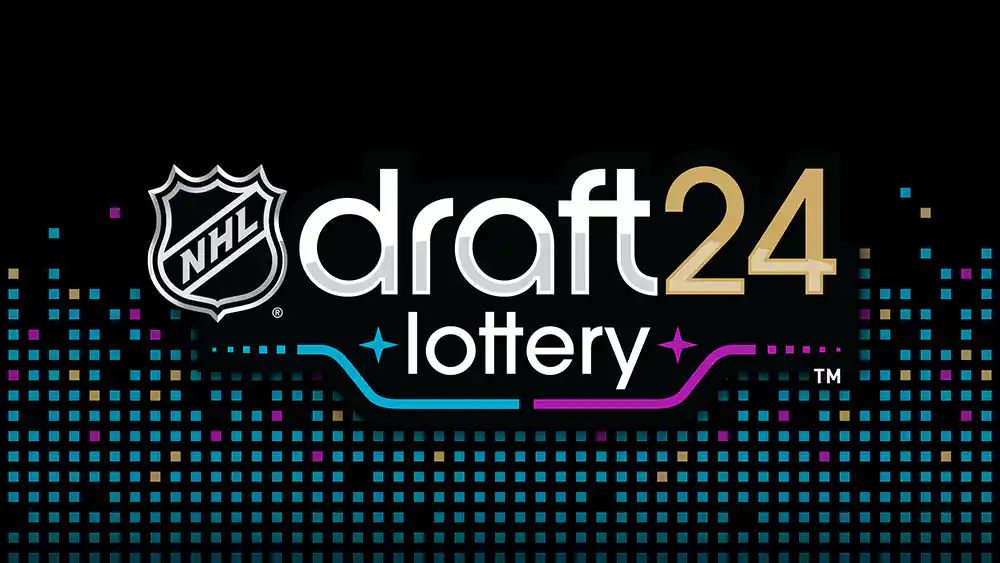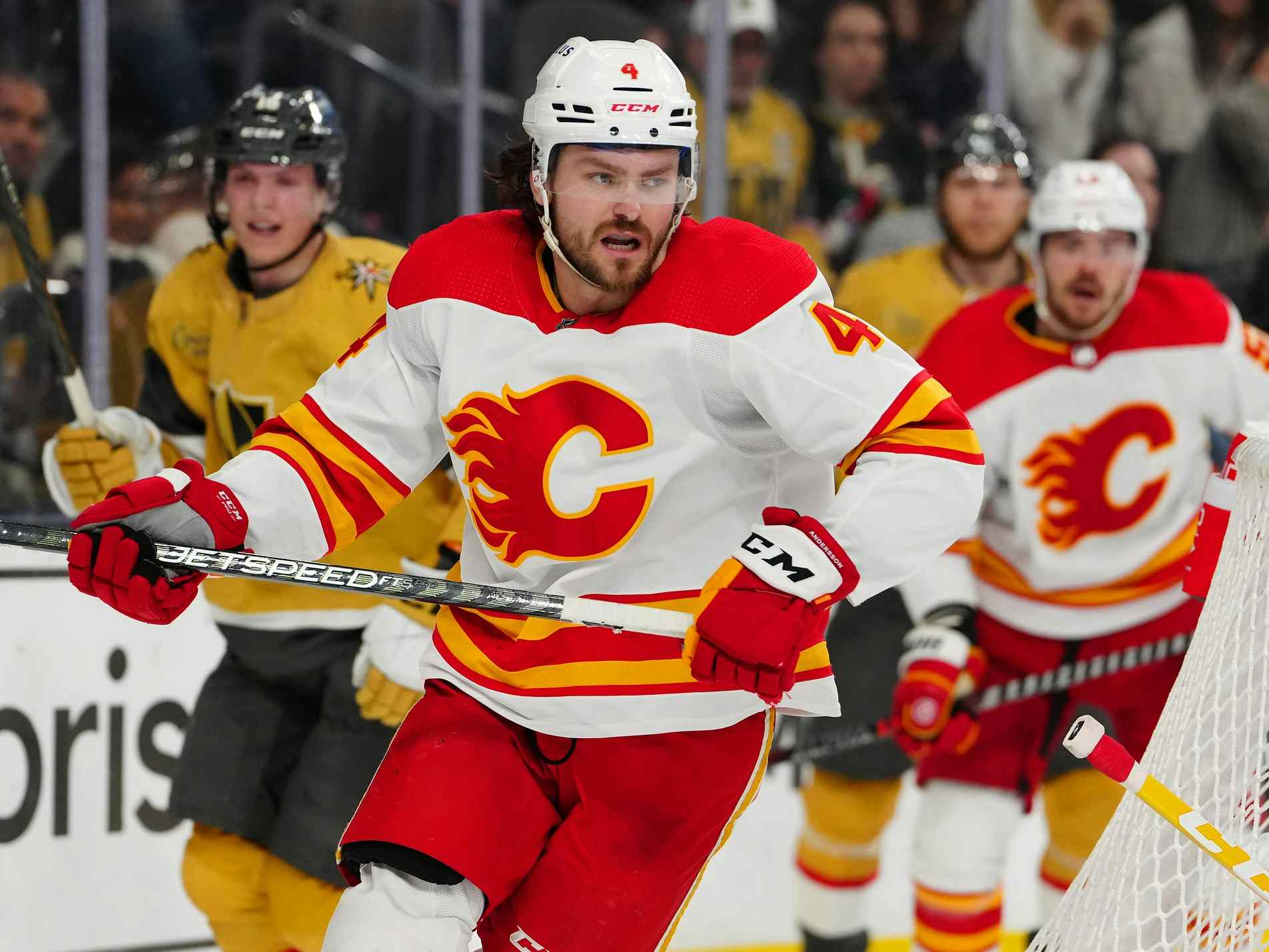One-On-One with Adirondack Head Coach Ryan Huska
By Ryan Pike
9 years agoWhen the Calgary Flames relocated their American Hockey League affiliate to Glens Falls, New York, the club also went out and recruited a brand-new coach to lead the team.
Formerly a bench boss with the Kelowna Rockets – where Mikael Backlund was one of his charges for a season – Ryan Huska is in his first season as a professional-league coach. The Baby Flames started off slowly, but have really hit the ground running over the past eight weeks, and they enter the Christmas break with an 18-11-2 record (second in their division behind the Utica Comets).
Thanks to our friends at the Adirondack Flames PR office, we had a quick chat over the phone with Huska late last week.
What are your thoughts on the season so far? The Flames struggled a bit early-on in the standings and on the scoreboard, but things seem to be going really well since November began. Was it a case of sticking to the program?
I think it is a lot of sticking to the program, but I think early in the year you have to factor in basically an entirely new staff. Players had to get used to us, we had to get used to the players.I think really getting them to understand how we expected them to play and compete on a nightly basis was important for us, and it took us a few games to get to that point. Now having said that, there were some games when we lost in that stretch early on in the beginning portion of the year where we thought we played pretty well and we deserved at least a few points out of it, but the way hockey works sometimes it isn’t always the case.
More to answer your question quickly, I think it took some time for the players and the staff to get used to each other.
Adirondack’s a unique situation: a first-year franchise, a lot of first-year pros, a new coach, an entirely new coaching staff, a different building, a different group… Was it a situation where you just needed to take the time to work all the kinks out?
Sure. And that’s a big part of it. As you mentioned, this was the first year for a lot of players and even, potentially your second year guys, if you can say that, I think a lot of times when they come down they have the assumption that the American Hockey League is an easy league, where I’m just going to show up and things are just going to happen for me quickly and quite easily. But that’s so far from the truth. This is a very good hockey league, and I think sometimes players get caught up in maybe looking at it that’s it’s going to be easy instead of coming and preparing to work the first time they step on the ice.
I am happy to say that over the course of our stay the guys are taking a lot of pride in looking to get better each and every day not wasting any days, so it’s something we’ve been really happy with.
Are there any players that have really improved over the course of this season?
You know, there’s a lot of them. I don’t think it would be fair of me to single out one or two guys, but we have seen significant improvements from a lot of players. Some guys, you know, maybe at the beginning of the year we questioned where they would fit even into our line-up, and with all the injuries that kind of happened up in Calgary and we had some injuries down here, they were given a greater opportunity to play and play in some more situations and a lot of them took advantage of that time.
One guy in that boat I would have to say David Wolf. He really took advantage of it and he kind of solidified himself as a player with us and a future player with the Flames.
In previous seasons, players had been sent down to the American League due to performance – such as Sven Baertschi last season. This season, a lot of players pushing to make the Flames roster went down merely because of the numbers game in Calgary. Are they coming down with that confidence from the NHL, given that they’re going back to Adirondack because of guys getting healthy rather than anything negative?
We have seen that with all of the guys that have been sent back. They’ve come back with great attitudes. You know, before I finish answering your question, we have a lot of great young men here in Glens Falls – or Adirondack, if you will – that do come to work every day. When these guys have come back down, I feel like their habits are really good. Calgary has a high expectation in regards to how players play on the ice, how their habits are, what their work ethic’s like, so these guys come down and we’ve done a good job of carrying and maintaining that, and it’s setting a great example for some of our players that are currently with our club right now.
As a new coach in the AHL, how big of a challenge is it balancing a roster of veterans and rookies?
Well, everybody’s here for the same reason. Everybody, even at this level, you still wanna win. It’s important for all of us to understand: staff, players… Everybody’s got a lot of pride and at the end of every night, we want to win hockey games and we eventually want to get ourselves into the playoffs and make some noise there as well. We knew full well taking this job that a big part of it was making sure the young players in this organization were getting time on the ice. Because of that, and a good understanding of what our expectation was from the communication we do have with Calgary on a daily basis, we are keeping these younger guys in the line-up but we are surrounding them with an older presence. I think because of that, the younger guys have developed a little quicker maybe and felt a little bit more comfortable on the ice because they are playing with some guys like a Corey Potter or a [Nolan] Yonkman on the back end, guys that have really helped them, who have helped them settle down and gain some confidence at this level.
Looking up and down your roster, there are a lot of guys that have some experience in the NHL and with the Calgary Flames in particular. For a young team, is there a benefit to having those guys on the roster as a resource for the younger guys?
I don’t necessarily think it’s being a resource, but I think when players who haven’t been called up look around and see the number of guys who have – and it’s not the same guys all the time, it’s typically whoever’s performing the best – I think that’s a motivating factor for everybody in your group. No matter who you are or where you fit in our line-up, if you’re playing to your capability and filling the role we’re expecting you to play, you’re going to get that opportunity, and I think that’s probably the greatest motivator when people actually look around and see the number of guys who have been given an opportunity to play for the Calgary Flames. I think it makes people kind of keep that belief and that hope that if they do things the right way, that call might come for them one day.
As a coach brand-new to the AHL and the professional ranks, what’s the biggest thing you’ve learned transitioning from the juniors?
There’s been a lot. I think the adjustment we make in trying to learn the teams, there’s been a steep learning curve there in regards to how teams are playing and how you have to prepare your own team. I think probably the biggest thing is working with your players, the new players that you have and the new staff. That’s been probably our biggest challenge is working to try to get everybody on the same page, staff and players, trying to develop a culture where guys want to come to the rink everyday, in an atmosphere that they enjoy being around, they enjoy competing but they want to be there. Hockey’s hockey at the end of the day, so I think it’s more about trying to build a culture and trying to get things organized where we can be a successful team for a consistent period of time, this season and seasons to come.
Recent articles from Ryan Pike




